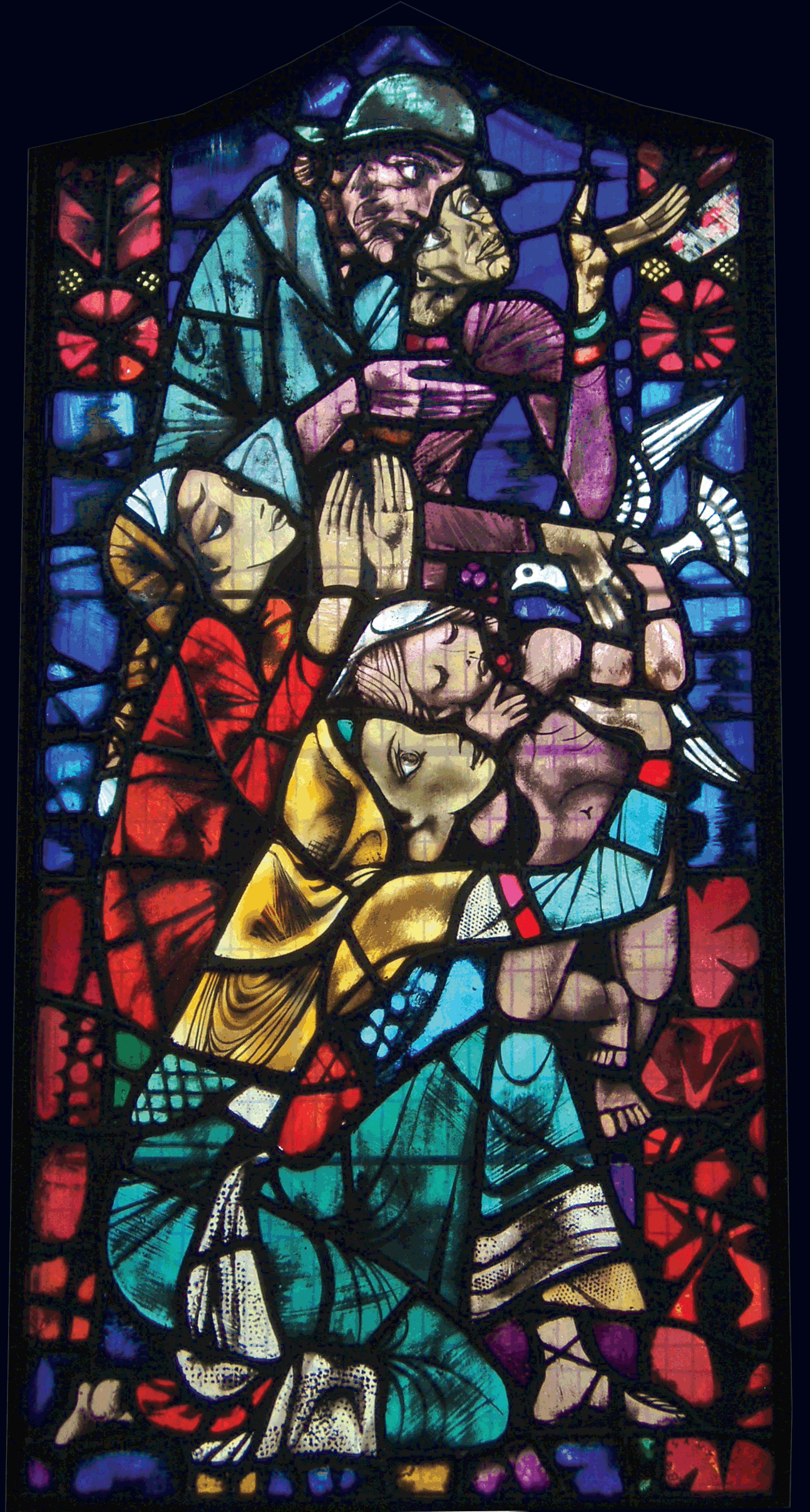Reconciling Paul
Lesson Two

Paul in the Context of Ancient Corinth
Scripture: 2 Corinthians 1:1–2:4
Key Idea: This lesson offers a basic outline of 2 Corinthians, provides important historical background about the church that Paul founded in Corinth, and gives an overview of the issues facing the church in Corinth.
Elizabeth Hinson-Hasty is in great demand! That’s why Carissa Herold, PW’s marketing associate, is giving Elizabeth a bit of breathing room by assisting with this blog series. Here Carissa reflects on the second lesson of Reconciling Paul.
Elizabeth will return to this blog series for the third lesson.
I really love the title of this study—Reconciling Paul—because as a contemporary woman of faith I have spent more than a little time trying to do just that, reconcile my understanding of the world and faith with Paul’s understanding of these things. Actually, reconcile may be a bit more polite of a word choice for some of the struggling/wrestling/whining I have done on behalf of Paul’s word choices or at least, my interpretation of them. I, of course, am not alone in this discomfort. Although there are considered arguments to the contrary, a good deal of Paul’s writing is, at first blush, let’s face it, difficult to reconcile. As the study’s author, Elizabeth Hinson-Hasty, shared in the first blog in this series: “When selectively read, Paul’s writings have been used to condone exclusion, bondage, and the control of others. However, I want to suggest in this study that Paul is all too often misinterpreted and misunderstood. The title also emphasizes Paul as an agent of reconciliation, one who embodies reconciliation, love, and healing.” I am so glad for this study.
I am so glad for this study because I can make space to make peace with the fact that Paul’s conversion took place soon after Jesus’ death and resurrection. In other words, without Paul and his ministry, evangelism, sacrifice, vision, and yes, letter writing, Christianity throughout the ages would have unfolded in a completely different way. Put another way, I cannot choose not to wrestle (and reconcile!) with Paul’s words because, among many things, his were the first and arguably most consequential. Reconciling Paul, indeed. I am so glad for this study.
God with Us
At heart, I’m an Easter kind of person, and judging from church attendance on that (always, even when cold and rainy) beautiful day, I’m not alone. I revel in the story of the empty tomb. If I close my eyes and think of my faith, I cling to this image. But while reading the second lesson, I was struck by words I found on page 24 (page 39 of the large print). Elizabeth writes, “Paul’s principal message to the Corinthians focuses on Jesus as the crucified Christ.” “For I decided to know nothing among you except Jesus Christ, and in him crucified” (1 Corinthians 2:2, NRSV). Or “I deliberately kept it plain and simple: first Jesus and who he is; then Jesus and what he did–Jesus crucified” (The Message).
Wow.
Although understandable, not allowing ourselves to awaken to and embrace the sacrifice Jesus made for humankind diminishes our fullest understanding of the complexity and grace of God with us, Immanuel. As fully human, Jesus’ journey to and death on the cross, was unfair, brutal, humiliating and lonely. Jesus suffered. Jesus died. Jesus descended into hell, according to the Nicene Creed. Could our Easter celebration be as triumphant, our walk in faith more meaningful, our own willingness to stand up against the injustices of the world as probable without knowing Jesus in this way? Truly, when in the “darkest valley” (Ps. 23:4), knowing that, although perhaps unfair, brutal, humiliating or lonely, we are not the first nor are we alone in our travels through and to a better day.
**
I had written the just previous paragraph yesterday afternoon. This morning, while starting the day, I spied a book in a stack of books on my shelf that I had purchased during General Assembly in Pittsburgh (a sticker from Pittsburgh Theological Seminary—“See Yinz in the ‘Burgh 2012!”–is tucked within its pages). The book is The Good Book: Reading the Bible with Mind and Heart by Peter Gomes (HarperCollins, 1996). When I randomly opened the pages, I spotted these words (my mother-in-law would call finding this quote a “God wink”!):
“Those who worship at the costless cross literally ‘have their reward,’ as Jesus says. Literally, they see what they get, a convenience store religion which may provide what one needs in the short run at great price, but which is incapable of sustaining one over the long run at any price.” Further, “The reason that the dying ask to see the cross before they die is to be reminded that Jesus has been where they are now, and that by his grace they are now to go where he is. Suffering, of which death is the ultimate expression, they know by the cross is a means, and not an end. They know that death was as real to Jesus as it is now to them. They know that he was not rescued in the nick of time. They know that when his hour was come he had to meet it, and there was no way out; and they know also that is true for them. Knowing this, they also know that in the cross Jesus made it through and that he came out on the other side; their prayer is that what was promised and achieved in Jesus may be achieved for them as well.” (pages 228—229).
Until next time… (I’ll return with blog 4!)
—Carissa Herold
